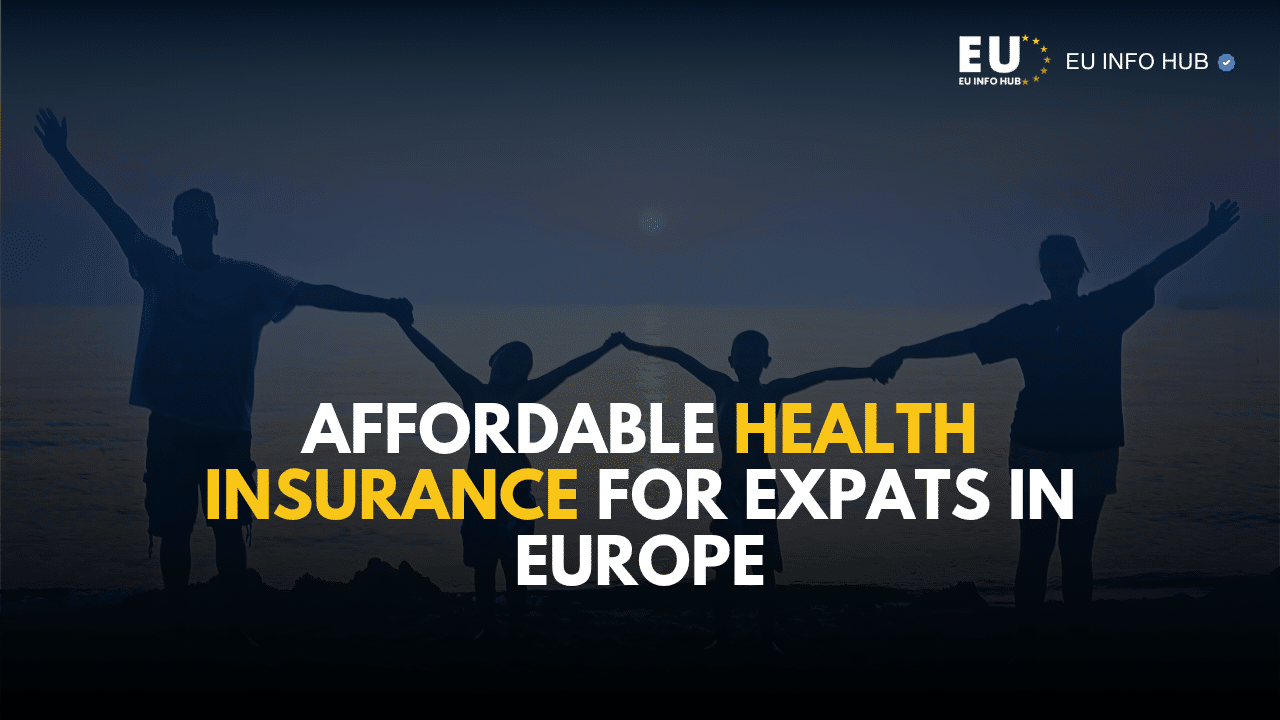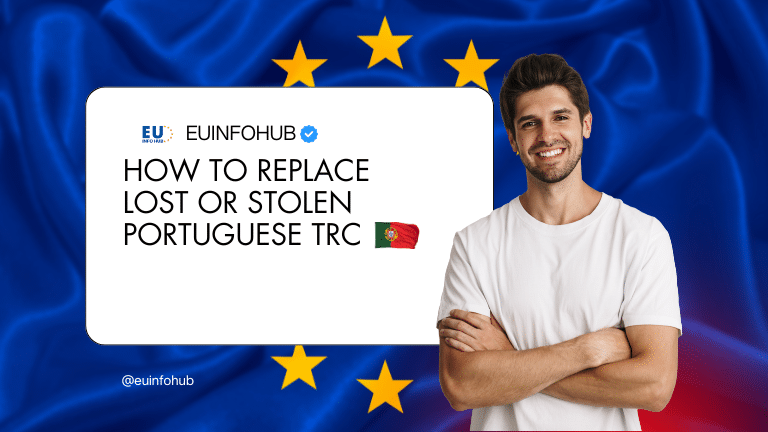Moving to Europe is an exciting prospect, whether for work, study, or a fresh start. But many expats are surprised by how complicated health insurance can be in Europe. Each country has different rules, public systems aren’t always accessible, and costs can add up fast.
If you’re interested in the most affordable expat health insurance in Europe, you’ve come to the right place. This guide covers what you need to be legally covered, the cost involved, and how to ensure that you are not being charged for that coverage. Whether you are a complete newcomer to Europe or considering your next move, this is the jump-off point you need.
Why Expats Need Health Insurance in Europe
Health insurance is often mandatory for expats. Most European countries require you to provide proof of valid health insurance when applying for a visa or residence permit.
For example, if you’re moving to Germany as a freelancer or student, you’ll need to present an insurance policy that covers at least €30,000 and includes hospitalization. The same applies to countries such as Spain, France, and Portugal..
Most beginners assume they are automatically covered under public healthcare. However, access to public healthcare depends on factors such as employment status, income, and legal residence. Until that eligibility is achieved, private insurance is typically the best available option.
The most common mistakes made by some people include:
- Buying short-term travel insurance that doesn’t meet visa requirements
- Choosing a cheap plan without checking its coverage limits
- Assuming public healthcare is free or immediately available
The Reality of Health Insurance Costs in Europe
Europe is known for high-quality care, but that doesn’t always mean low cost, especially for newcomers.
Public Health Insurance Can Be Pricey
Employees in Germany and the Netherlands must have public health insurance, which usually starts from €100 and can go up to as much as €300 a month. Freelancers and students do not qualify right away, which makes private options necessary.
Private Plans Offer Better Entry Points
Private insurers offer flexible plans that are:
- Cheaper (starting at €30–€50/month)
- Visa-compliant
- Designed for short- and long-term stays
These are also recommended for individuals who have not yet utilized any public systems or prefer a more efficient option.
Price Range Comparison by Country
- Germany: Public insurance (GKV) costs around €200 per month. Private expat options, such as Feather, start at around €50–€80.
- Spain: Private plans, such as Sanitas and Adeslas, range from €30 to €70 per month.
- Portugal: Entry-level plans from local providers start at €25–€60/month.
- France: Until you qualify for public care (via PUMA), you will need private coverage, such as Cigna or April, which typically costs €50-100 per month.
What Budget Insurance Covers
Even the cheapest health insurance in Europe for expats should include:
- Emergency care
- Hospital stays
- Basic outpatient care
- Medication and diagnostic testing
Don’t settle for a plan that looks cheap but fails you in real-life situations. Read the fine print.
Unfamiliar Healthcare Systems
Each European country has its own distinct laws, procedures, and forms of coverage. This can be quite difficult for numerous expatriates, particularly if they struggle with the local language.
Here is a small breakdown of some of the systems.
- Germany: Public and private systems exist alongside one another. Public insurance is usually taken by employees, but private is the choice for freelancers and students since it is cheaper.
- Portugal: Here, public care is available but you may experience long waiting times. So, private insurance is often used by many expats to complement it for quicker service.
- Netherlands: Health insurance is mandatory, even for expats. You should register with a Dutch provider, and plans start from about €100 a month.
Things to consider while selecting a provider:
- English-speaking support
- Coverage accepted by immigration
- Fast claims processing
- Options to upgrade if your needs change
Cheapest Health Insurance in Europe for Expats
Let’s discuss what you came to find out about the most affordable health insurance options available to expats in Europe. While there is no one health plan for all, some providers assure you that they give good value for money, especially students, freelancers, and digital nomads.
Top Budget-Friendly Providers
- SafetyWing: It is a favourable choice for digital nomads. Starting from $45/month, it is the right option for short-term and medium-term stays.
- Feather (Germany): It is clear, English-friendly sign-up process and plans tailored for visa needs.
- Cigna Global: It is a flexible system for international coverage. Modular pricing is available, so you only pay for what you need.
- Allianz Care: It is a Strong global network. Not the cheapest but a reputable option and highly accepted
Before you buy, always check:
- Does it meet your visa/residency requirements?
- What’s covered and what’s not?
- Is it accepted in local hospitals?
- How fast is the claims process?
Inexpensive insurance does not always have to be risky; however, policies without adequate coverage may result in much bigger problems later. Think through your choices carefully.
Insurance That Meets Visa and Residency Requirements
You could find the most affordable health insurance in the European market. But if it doesn’t comply with your visa requirements, your best insurance is useless.
There are minimum coverage levels set by various countries, such as a compulsory coverage of € 30,000 for medical expenses with no deductible and 100% hospitalization coverage. To obtain a Schengen visa, these requirements must be met.
Common reasons for rejection are:
- Coverage is too short (under 90 days)
- Missing hospitalization or repatriation coverage
- Policies that don’t name all Schengen countries
Country tip: In Spain, private plans from insurers such as Sanitas or Adeslas are generally accepted if there are no co-payments and full coverage. In Germany, Feather’s policy with unlimited benefits is typically accepted when applying for startup visas.
Understanding Policy Jargon Without Going Crazy
Insurance documents often inundate you with complex terms. The macro view of the most important ones will help you to keep things simple.
- Deductible: The amount you pay before your insurance starts covering costs.
- Co-pay: A small fee you pay each time you see a doctor or get medication.
- Exclusions: Conditions or treatments the policy doesn’t cover.
- Waiting period: A set time after signing up before certain benefits begin.
Before you commit, ask:
- Is this plan 100% accepted by immigration?
- Are chronic conditions covered?
- Will I pay upfront for treatment?
A good provider should clearly respond to these queries in your language. If they don’t, then look somewhere else.
Finding the Right Coverage (Not Just the Cheapest)
The actual fact that price is indeed a significant consideration, especially for students and freelancers, but sometimes, the cheapest scheme leaves you unprotected at your most crucial times:
Here is a short list of what essential coverage must include at all times:
- Emergency care
- Hospital stays
- Doctor visits
- Prescriptions
The additional options would likely be expensive, such as dental care, vision care, or maternity care. However, these add-ons are worth considering if you’re in it for the long haul.
Pro tip: Always check whether your plan includes direct billing with local hospitals. If not, you’ll pay upfront and then wait for reimbursement.
Wrap Up
Obtaining health insurance in Europe for expats can be perplexing due to the various systems, regulations, and providers. However, with proper guidance, it’s simpler than you realize. Concentrate on options that adhere to visa regulations, are trustworthy, and provide genuine value, not merely the cheapest option.
Check out the EU Info Hub for simple comparisons, visa-friendly alternatives, and professional guidance to ensure you remain protected and assured no matter where you travel in Europe.
FAQs
1. What is the most affordable health insurance option in Europe for expatriates?
Among the most cost-effective providers are SafetyWing, Feather, and Sanitas. Prices vary between €30 and €70 per month, depending on your location and visa type. Ensure the policy is approved by immigration and covers essential aspects such as hospitalization and emergency care
2. Can I use travel insurance for a European visa?
Generally, travel insurance is inadequate for most long-term visas. Typically, European immigration requires extensive medical insurance that provides hospitalization coverage and remains effective for the entire stay.
3. How do I know if a plan is visa-compliant?
Look for regulations specifically intended for visa or residence permit purposes. These typically follow EU guidelines regarding the scope of coverage and the types of services offered.
4. Is private insurance better than public insurance for new expats?
For the majority of beginners, indeed. Public systems frequently necessitate lengthy registration procedures or income verification. Private plans are quicker to obtain, typically less expensive initially, and simpler to use as you adjust.
















Merhaba, bu yararlı rehber için teşekkürler. Özellikle Avrupa’da sağlık sigortası seçeneklerini anlamak gerçekten karmaşık olabiliyor. Yazıda İspanya’daki özel sigorta planlarından bahsedilmiş (Sanitas, Adeslas). Ancak İspanya’da kamu sağlık sistemine kaydolmak ve sağlık kartı (Tarjeta Sanitaria) almak da mümkün, eğer şartları sağlıyorsanız. Bu konuda daha detaylı bilgiye ihtiyacım var. Örneğin, İspanya’da oturma izni olan bir öğrenci veya serbest çalışan, kamu sağlık sistemine nasıl kaydolur? Kayıt için gerekli belgeler nelerdir ve süreç ne kadar sürer? Bu konuda adresinde güzel bir rehber olduğunu gördüm. Sizce İspanya’da uzun süre kalacak biri için özel sigorta mı yoksa kamu sistemine kaydolmak mı daha avantajlı? Teşekkürler!
Thank you for this comprehensive guide on health insurance for expats in Europe! It’s incredibly helpful to see the breakdown by country and the comparison of providers.
This might be a bit off-topic for Europe, but your section on understanding policy jargon like deductibles and co-pays reminded me of a similar challenge I faced. I was recently researching insurance options for a friend considering a move to Thailand and found the terminology just as confusing there. I came across a very detailed guide that breaks down the Thai healthcare system and insurance requirements for expats and tourists, much like your article does for Europe. Sorry for dropping a link here, but it might be useful for anyone reading these comments who is also considering options in Asia, just to better illustrate the kind of comparative information I’m referring to: https://pillintrip.com/article/medical-insurance-thailand-the-complete-guide-for-tourists-and-expats-in-2025
My question for you, based on that comparison: For a long-term expat in a country like Spain or Portugal, how crucial is it to have a plan with an extensive direct billing network versus a reimbursement model? Does the efficiency of direct billing significantly outweigh the potentially lower premium of a reimbursement-based plan, especially when dealing with a potential language barrier?